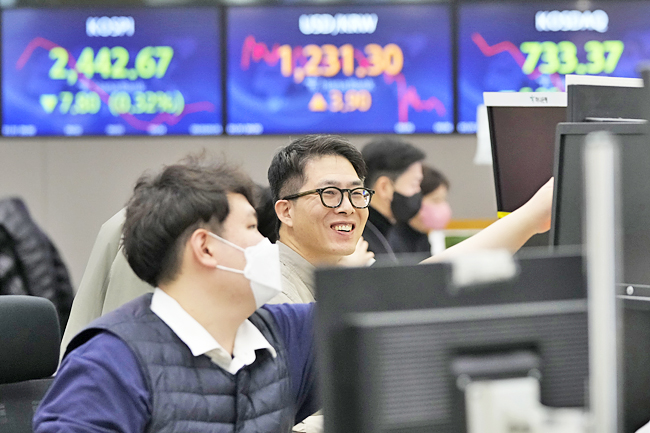TOKYO (AP) – Asian shares mostly fell in muted trading yesterday as investors awaited decisions on interest rates and earnings reports from around the world.
Traders were awaiting the US Federal Reserve’s decision on interest rates, expected today.
They are also watching for indicators on the Chinese economy, the region’s key engine for growth.
Japan’s benchmark Nikkei 225 inched down 0.1 per cent to 27,391.88. Australia’s S&P/ASX 200 edged up nearly 0.1 per cent to 7,487.10. South Korea’s Kospi declined 0.4 per cent to 2,440.25. Hong Kong’s Hang Seng lost 0.3 per cent to 22,011.37, while the Shanghai Composite shed 0.2 per cent to 3,262.62.
“China’s rapid re-opening has boosted its domestic growth outlook, Europe’s mild weather has sharply reduced its recession risk, and a string of better inflation news has increased hopes that the Fed may be able to engineer a ‘soft landing’ in the US,” said managing partner at SPI Asset Management Stephen Innes.
“Despite these shifts, US recession risk remains a major worry and may be the most significant risk to the global cyclical picture,” he said.

Shares fell on Monday on Wall Street. The S&P 500 dropped 1.3 per cent to 4,017.77, giving back some of the gains that had carried it last week to its highest level since early December.
The Dow Jones Industrial Average fell 0.8 per cent to 33,717.09, while the Nasdaq composite sank two per cent to 1,393.81. Markets have been veering recently on worries that the economy and corporate profits may be set for a steep drop-off, along with competing hopes that cooling inflation will get the Federal Reserve to take it easier on interest rates.
The central bank’s next decision on rates is coming today, and most investors expect it to announce an increase of just 0.25 percentage points. That would be the smallest increase since March, following a spate of hikes of 0.75 points and then a 0.50-point increase, and it would mean less added pressure on the economy.
Higher rates combat inflation by intentionally slowing the economy, while also dragging down on prices for investments. Inflation has been cooling since the summer amid last year’s blizzard of rate hikes, but the economy has also been showing signs of concern.
The big question is whether Fed Chair Jerome Powell will give markets what they want to hear – hints that rate hikes will end soon and rate cuts may even be possible late this year – or stick to the Fed’s mantra that it plans to keep rates higher for longer, even if a modest recession hits.
Central banks for Europe and for the United Kingdom are also set to announce their latest increases for rates this week.



















































